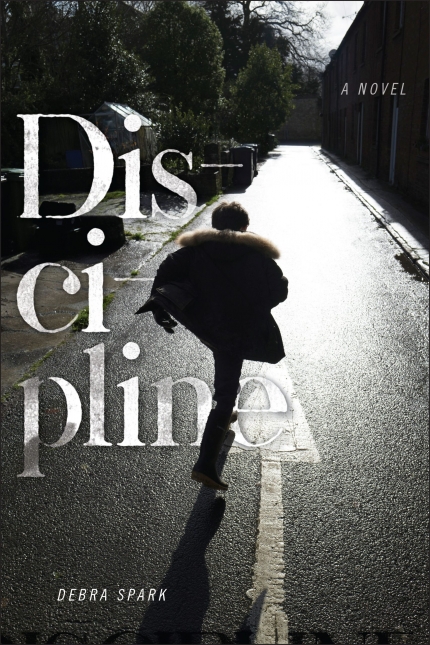Discipline: A Novel
- By Debra Spark
- Four Way Books
- 316 pp.
- Reviewed by Kristin H. Macomber
- April 17, 2024
This ambitious historical mystery mostly sticks the landing.

Chapter one, 2018: A woman is stranded outside a ferry terminal on a frigid winter evening, her mind distracted with anxiety about her runaway son. Eventually, she realizes that the driver she was told to expect is nowhere to be found, her phone is dead, and she has no clue what her next move should be, beyond attempting not to freeze to death.
Chapter two, 1978: A troubled high-school underachiever, cat-napping his way through a boring Spanish class, is unexpectedly jostled awake by a pair of men he’s never seen before, who escort him to the principal’s office and then, inexplicably, take him on a two-day journey to a rural reform school close to the Canadian border — all without so much as a goodbye to his foster parents.
Chapter three, 1930-1935: A collection of Depression-era correspondence reveals the life of a struggling artist granted multiple stays at a rural art colony while his homebound wife anxiously tries to make ends meet and recover from heartbreaking, recurring miscarriages. Her final letter recounts an encouraging visit from an art dealer who has come to view the husband’s work and who offers to represent him. The husband’s last letter reveals he’s finally made it as a professional artist, and that he, his wife, and their baby daughter will enjoy an extended retreat together on the coast of Maine, without need of another art-colony grant.
Welcome to the opening chapters of Debra Spark’s latest novel, Discipline, and prepare to be launched into a whirling dervish of narrative threads spanning nine decades and scattered geographically from the near and far reaches of Maine to the fine-art auction houses of Manhattan and, most unexpectedly, to a sandhill-crane-viewing vista in Arizona. And while you’re sticking pushpins in a map to keep the locales straight, may I suggest you grab a pencil and paper to keep track of the characters — a varied cross-section of humanity, to say the least? Together, these places and people will be spun into a series of converging storylines, all coalescing around a trio of paintings known as the Morrison Triplets.
The first character we encounter (shivering back at that ferry terminal) is Gracie Thomas, who has made the off-season trek to appraise a wealthy collector’s summer-home art cache. While there, she expects to finally lay eyes on the infamous triplet portraits, which are part of the millionaire’s considerable holdings. Alas, Gracie soon realizes that the eerie baby images she’s heard so much about are nowhere to be found. With that, Discipline’s central mystery is off and running.
The “Who did it?” and “Where are they now?” plot twists will eventually connect the stolen paintings with nearly every character in the book — some from ages past and some in the here and now, with one unlikely passerby wandering into the narrative and literally selling the horse he rode in on to buy a gun, thereby saving a major character from her own bad judgment. He even gets to write his own chapter!
Spark has done her homework; many of Discipline’s scenarios echo true stories, both historic and ongoing. Ranging from art-colony intrigues to art heists (with ill-considered attempts to sell the loot) to vanity-art centers established by doting family members to improve a fading artist’s renown, Spark’s fictionalized versions of real happenings hark back to bygone headlines. The author has also resourcefully incorporated research on the lives of Portland’s Preble Street homeless population, along with the interviews she undertook regarding abuses inflicted on former students at a 1970s reform school in Maine — which, like her imagined version, was a run-amok institution of last resort for troubled teens in a troubling time.
Discipline is a rollercoaster of a read from the first page to the last. But if you peel away the scaffolding of its elaborately staged plot to search for an underlying theme, you might find yourself wondering about the recurring issues of truth and falsehoods. When is the value of truth-telling discounted? When are lies allowed or even required? And what happens when lies are given more credence than facts?
These questions are integral to the novel. But unlike the satisfying discovery of the missing paintings, questions surrounding the honoring of truths are left unresolved. What is the price, after all, of protecting a lie? Who gets to decide when living one is a better option than owning the truth? And do some lies deserve to live forever?
Bottom line, Discipline works its magic as a follow-the-art mystery romp but leaves readers wishing the relationship between truth-telling and secret-protecting held more quiet space in which to be considered.
Kristin H. Macomber is a writer living in Cambridge, MA, who happened to grow up adjacent to the art world of mid-coast Maine.
_80_128.png)
